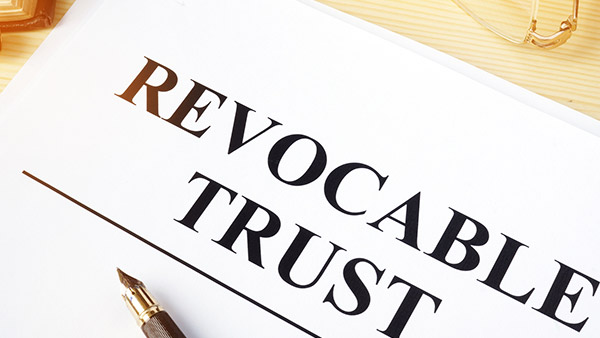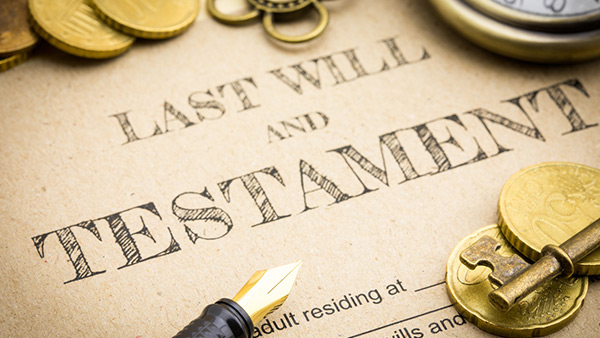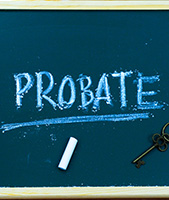Frequently Asked Questions
A trust is a way of holding title to the things you already own, and a place to hold things that you will acquire in the future. You can own your house, bank accounts, investments and other real and personal property in a trust. During your lifetime, you are the creator, trustee, and the beneficiary of your own trust. This kind of trust is often referred to as a living trust or a revocable trust. You can cancel, revoke, or change your trust anytime during your lifetime. After you’re gone, your trust can pass assets to your loved ones just like a will, only much more efficiently.
A trust is a document meant to be administered privately. A will, on the other hand, is a public document that usually goes through the public probate court, and almost always requires an attorney to administer and interpret. It often takes months or years to probate a will, and it can also be very expensive, sometimes costing 6% or more of the entire gross estate in court costs and attorney fees. Alternatively, with a trust, your hand-picked successor trustee can distribute your assets to your loved ones privately after you’ve passed, under the exact terms you dictated, without having to go through an expensive, public probate court process or incurring attorney fees.
Bottom line: wills are public and are usually quite expensive in the end, while trusts are private, efficient, and less expensive to administer.
A living trust is a legal document that states who you want to receive your trust assets if you pass away, and who you would like to manage your trust assets if you become incapacitated. A trust helps communicate your wishes so your loved ones aren't left guessing or dealing with the probate court.
A properly funded revocable trust allows you to hold assets in trust for your own use and enjoyment during your lifetime and pass them on to your loved ones upon your own terms after you’re gone, privately and efficiently, without probate. A will, on the other hand, usually has to go through a public probate court before it is considered valid, and it is often expensive and time consuming to administer. A will usually requires an attorney to administer; a trust can be administered and distributed privately without a court or an attorney.
It’s simple: to protect what you’ve worked hard for and your loved ones, in an easy-to-update and decipherable digital format. All that without notaries, probate, and vulnerable paper documents.
Create your Modern Trust in four basic steps:
- Choose your beneficiaries
- Choose your trustees
- Add your assets
- Sign and maintain your trust online
15 minutes! Complete your Modern Trust now, and get busy living!
Anyone who wants to protect their assets from probate, preserve their privacy and make sure loved ones can privately receive their inheritance efficiently once you pass. It’s not just for the wealthy—it’s for everyone. Click here to learn what satisfied Modern Trust customers have to say.
Historically, living trusts are printed on paper and signed in front of a notary public. The private document is usually kept hidden until a person passes away or becomes incapacitated. Unfortunately, paper documents are often misplaced or lost, thereby becoming ineffective. With Modern Trust, your living trust document is always accessible online, and can never be lost or misplaced.
During your lifetime, only you can open and read your living trust by accessing ModernTrust.com and entering your own private credentials, including your user name and password. Upon your passing or incapacitation, your chosen successor trustee can then access your trust document by providing a certified death certificate to Modern Trust. Or, in the event that you become incapacitated, your successor trustee must provide Modern Trust with a court degree or evidence from two licensed physicians demonstrating that you are no longer capable of managing your affairs, after which Modern Trust will provide your trustee with access to your trust document. Finally, if you choose, you can forward an electronic copy of your Modern Trust document to your successor trustee, or to anyone, at any time.
Basically, no one can read your trust unless you say so.
Yes, for your trust to work properly, you must change the title of any bank accounts, credit union accounts, investment accounts, business interests, or real property (where there is not already a designated beneficiary), into the name of your living Modern Trust in order to avoid probate. If you fail to transfer an account or property into the trust, it may go through probate when you pass, and that asset could be distributed, after probate, to your next of kin.
So, it is important to use the forms provided to you, go to the bank, or speak with your financial advisor in order to properly change the title of each bank account into the name of your trust. For real estate, a grant deed transferring your interest in the property into your trust to avoid a public probate of the asset must be created, signed and recorded in the county where the property is.

What is a Living Trust?

What are the Tax Benefits of a Trust?

Can I help a friend or family member make their Modern Trust? What if they are a minor?

What is Probate?

What is Trust Funding?

What’s the difference between a Trust and a Will?

How does a Trust work?

How often should I update my Trust?

Is My Modern Trust Secure?

Revocable Trust vs. Irrevocable Trust?

What happens to my trust when I die?

What is an incontestability clause?

What is a trustee?

Where do I store my trust?

Why is a living trust better than a will?

What is a special bequest?

How do I sign my Modern Trust?